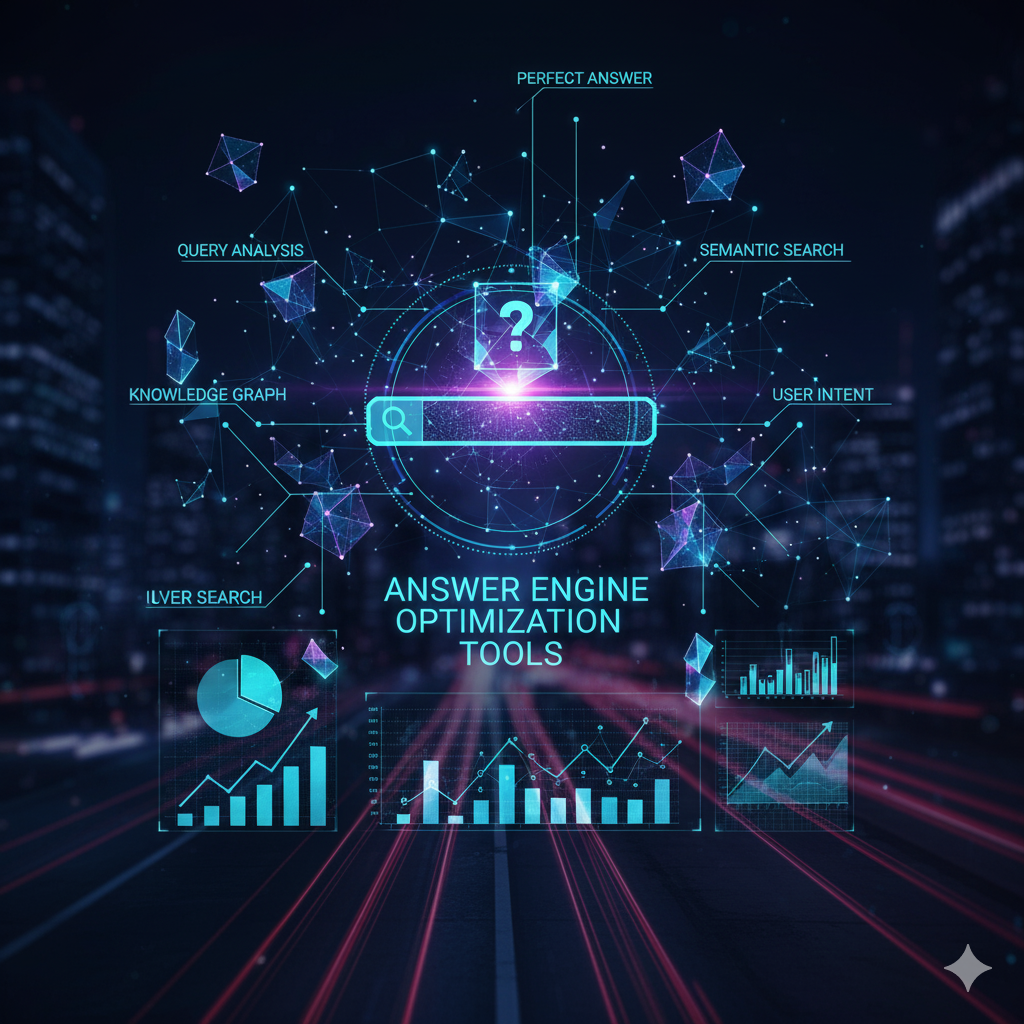If you’re marketing an AI product, chances are you already know how competitive the digital space is. Traditional SEO alone isn’t enough anymore. Users aren’t just typing short keywords; they’re asking complex questions, looking for precise answers, and relying on AI-powered search assistants. This is where Answer Engine Optimization (AEO) comes in.
AEO is the practice of optimizing content to directly answer user queries so it can appear in AI-powered search engines, voice assistants, and rich search results. For AI products whether software, SaaS, or hardware being positioned as the clear answer to a question can dramatically increase visibility, trust, and conversions.
In this article, I’ll explain:
- Why AEO is critical for AI products
- How AI tools help with AEO
- The best tools available in 2025
- Actionable strategies to implement AEO effectively
Why AEO Matters for AI Products
AI products are complex. Users often search for:
- “What AI tool can automate content writing?”
- “How does XYZ AI platform improve workflow?”
- “Best AI chatbot for small business in 2025?”
These are not just keywords; they’re questions. Traditional SEO may get your page on page 2 or 3, but AEO focuses on giving direct, clear answers that AI assistants and search engines prefer.
Benefits of AEO for AI products include:
- Increased Visibility: AI-powered search platforms and Google’s SGE (Search Generative Experience) prioritize precise answers.
- Higher Trust and Authority: Positioning your content as the definitive answer builds credibility with tech-savvy audiences.
- Boost Conversions: Users who find clear answers are more likely to explore your AI product, book demos, or sign up.
- Voice Search & Chatbot Optimization: AI assistants pull content from highly optimized answer-focused pages.
How AI Tools Help with Answer Engine Optimization
Optimizing for AEO manually is difficult because it requires analyzing:
- Question intent
- Search engine AI behavior
- Featured snippet potential
- Competitor content gaps
AI-powered AEO tools simplify this by:
- Analyzing search intent: Understand exactly what questions users ask and how AI interprets them.
- Generating snippet-ready answers: AI can draft concise, factual responses structured for voice and visual search.
- Content gap analysis: Identify where competitors are failing to answer the question fully.
- Optimization recommendations: Suggest headings, bullet points, and tables that match AI search patterns.
In short, the right tool doesn’t just write content it aligns your answers with how AI interprets user queries.
Best Answer Engine Optimization Tools for AI Products in 2025
Here’s a breakdown of the tools that stand out, including how they work and why they’re valuable for AI product content:
1. Frase AI
What it does: Frase AI identifies questions users are asking about your topic and generates AI-optimized answers. It provides outlines and snippet-ready paragraphs.
Why it’s good for AI products: Users often have technical questions. Frase helps you create clear, precise answers that both humans and AI search engines understand.
Use case: Writing landing pages, blog posts, and FAQs for AI platforms.
2. MarketMuse
What it does: MarketMuse performs content audits, identifies gaps, and recommends targeted answers based on search intent.
Why it’s good for AI products: It ensures your content covers all aspects of your AI product comprehensively, which is crucial for AEO.
Use case: Creating detailed guides, tutorials, and comparison articles optimized for AI-powered search.
3. Clearscope
What it does: Clearscope focuses on semantic relevance, helping you include the right terms and phrases AI engines look for.
Why it’s good for AI products: AI product queries often include niche technical terms. Clearscope ensures your answers match both user language and AI interpretation.
Use case: Optimizing technical blog posts, product documentation, and case studies.
4. SEMrush SEO Writing Assistant & Content Template
What it does: Provides competitor analysis and suggests content formatting, headings, and snippet-ready answers.
Why it’s good for AI products: You can directly compare what competitors are answering and optimize your content to outperform them in AI-driven searches.
Use case: Updating existing content to align with featured snippets or AI-generated answers.
5. AnswerThePublic
What it does: Generates a visual map of questions people ask around your topic.
Why it’s good for AI products: It helps you discover exactly what users are querying about your AI product, ensuring your content answers the most relevant questions.
Use case: Creating FAQs, guides, and knowledge-base content that satisfies AI search engines.
6. WriterZen
What it does: Offers keyword clusters and outlines focused on question-based queries.
Why it’s good for AI products: Helps structure content to directly answer common AI product questions in a way AI engines prefer.
Use case: Content planning for blogs, product comparison pages, and tutorials.
7. Surfer SEO
What it does: Analyzes top-ranking pages and provides insights into content length, headings, and structure.
Why it’s good for AI products: Ensures your answers are concise, organized, and formatted for snippet extraction and AI reading.
Use case: Optimizing landing pages and technical documentation for AEO.
How to Use These Tools Effectively
- Identify Top Questions: Start with tools like Frase AI, AnswerThePublic, or WriterZen to know what your audience wants.
- Analyze Competitor Answers: Use SEMrush or Surfer SEO to see how competitors are answering and where gaps exist.
- Create Concise, Structured Answers: Draft paragraphs, lists, and tables that directly respond to queries.
- Optimize Semantically: Use Clearscope or MarketMuse to include the right terms and phrases that AI engines recognize.
- Track Performance: Monitor which answers appear in AI-driven results and refine them continuously.
Real-World Example
Let’s say your AI product is an AI writing assistant. Users might ask:
- “Which AI tool writes blog posts fastest?”
- “How accurate is XYZ AI content generator?”
By using AEO tools:
- Frase identifies these questions.
- Surfer SEO and SEMrush analyze how competitors answer them.
- You create structured answers with tables comparing speed, accuracy, and pricing.
- Clearscope ensures relevant keywords and technical terms are included.
Result: Google, ChatGPT plugins, or AI search assistants pull your content as the top answer, driving targeted traffic directly to your product page.
Key Takeaways
- AEO is critical for AI products because users ask complex questions.
- AI-powered tools make answering these questions faster, more precise, and structured for AI search engines.
- Tools like Frase AI, MarketMuse, Clearscope, SEMrush, AnswerThePublic, WriterZen, and Surfer SEO provide comprehensive AEO support.
- Combining content strategy, AI insights, and proper formatting gives you a high chance of being the go-to answer for AI product queries.
Discover more from PratsDigital
Subscribe to get the latest posts sent to your email.


